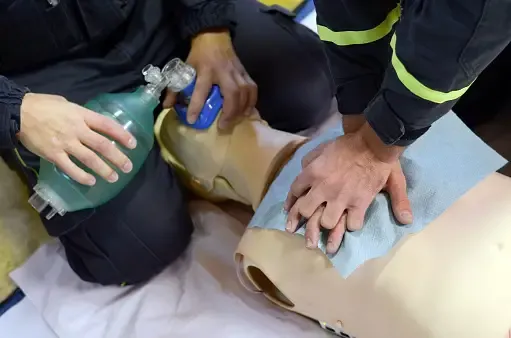
GET A QUOTE
Why Coaches Need First Aid Training?
Sports coaches are the unsung heroes behind the scenes, shaping athletes' journeys to success. While their expertise in training and strategy is widely recognized, there's another vital skill often overlooked—first aid training. Let's explore why this skill is crucial, even for coaches without extensive medical knowledge.
Reasons Coaches Need First Aid Training
Swift Response to Emergencies
Sports inherently carry risks, and injuries are part of the game. Coaches equipped with basic first aid skills can respond promptly to incidents, from common sprains to more severe situations like concussions or cardiac events. Immediate assessment and action can make a significant difference in preventing further harm and aiding recovery.
Ensuring Safety Everywhere
A coach's responsibility extends beyond the field. With first aid training, coaches are better prepared for unexpected situations during travel, outdoor activities, or changing weather conditions. From allergic reactions to heat-related illnesses, the ability to assess and administer first aid ensures a safer overall experience.
Bridge to Professional Care
While not a substitute for professional medical care, first aid knowledge can act as a crucial bridge until help arrives. Coaches can provide essential information to medical professionals, aiding accurate diagnoses and treatment plans. This collaboration enhances the overall effectiveness of the recovery process.
CPR Expertise
CPR is a life-saving technique, and coaches familiar with it can be the difference between life and death in emergencies like cardiac arrests or near-drowning incidents. CPR training and kits in the hands of coaches can be the crucial link to a second chance at life.
Calming Presence in Chaos
In the face of emergencies, panic is common. Coaches with first aid training remain a calming presence, reducing anxiety and encouraging a composed response. Their ability to assess, assist, and communicate clearly sets a positive example for others.
Cultivating a Culture of Preparedness
First aid-trained coaches foster a culture of preparedness within their teams. Athletes are more likely to prioritize safety, injury prevention, and prompt reporting of discomfort or health issues when they see their coaches actively prioritizing health and well-being.
Meeting Regulatory Expectations
Many sports organizations mandate coaches to have basic first aid training. This isn't just about fulfilling regulatory requirements but also fulfilling the ethical responsibility coaches have toward their team members. Participants trust organizers and coaches to prioritize safety when signing up for sports or recreational activities.
Conclusion
First aid training for coaches is indispensable. It ensures prompt response to emergencies, creates a culture of preparedness, bridges the gap to professional care, and instills confidence in participants. As coaches shape the experiences and development of their team, their commitment to safety leaves a lasting and positive impact, echoing far beyond the field.

